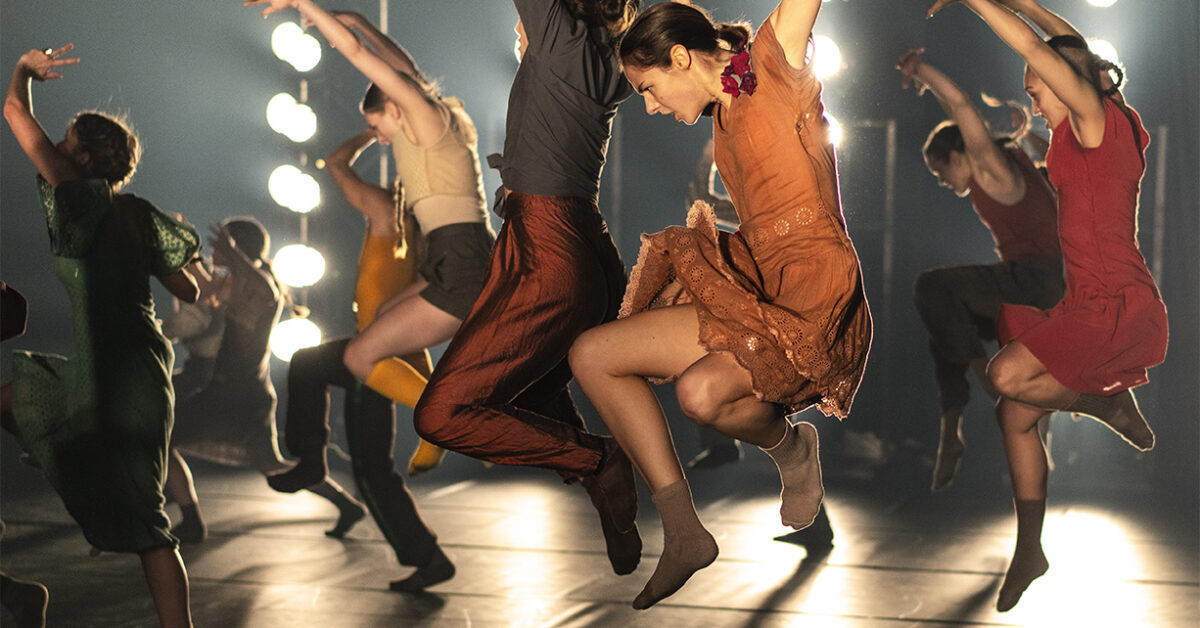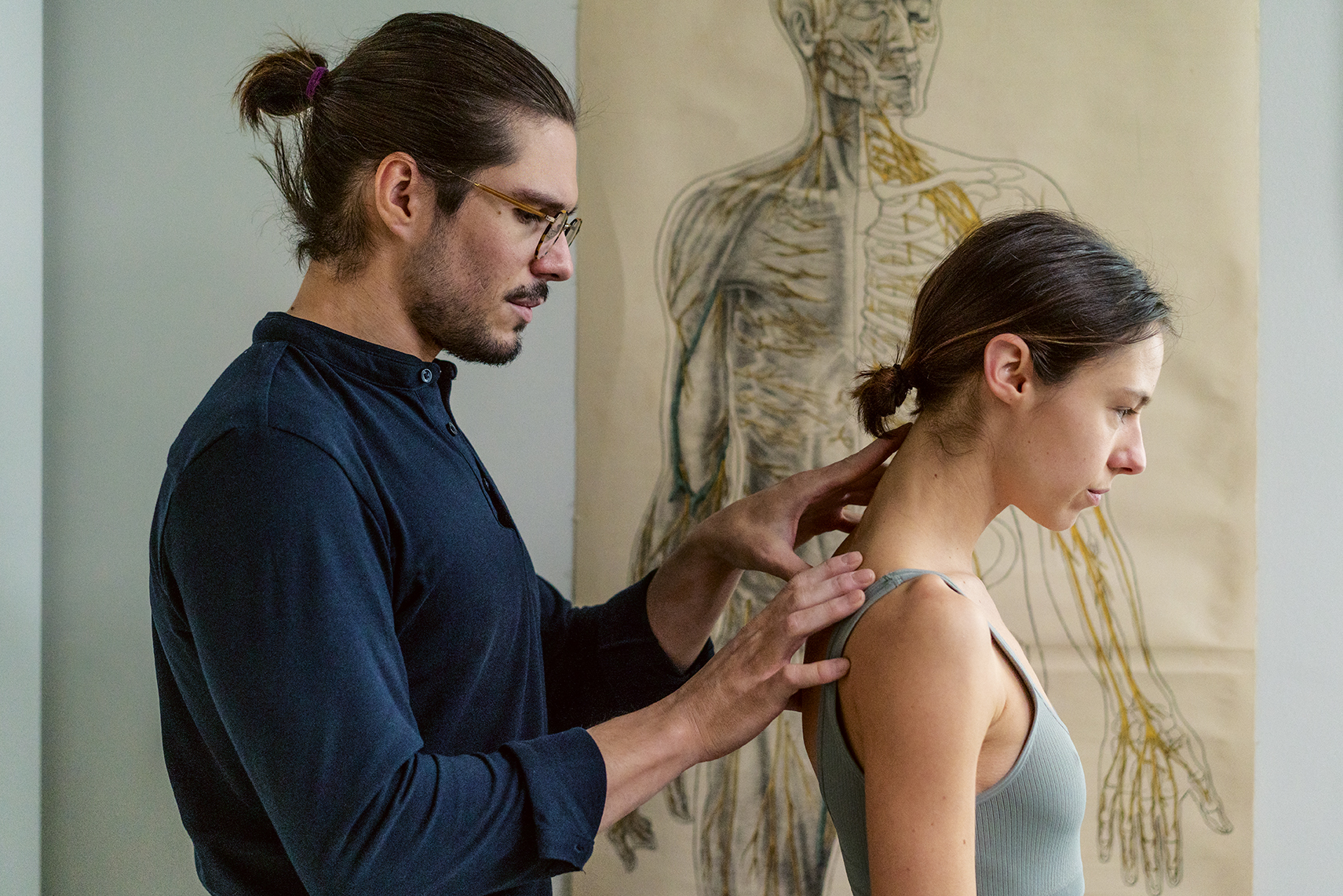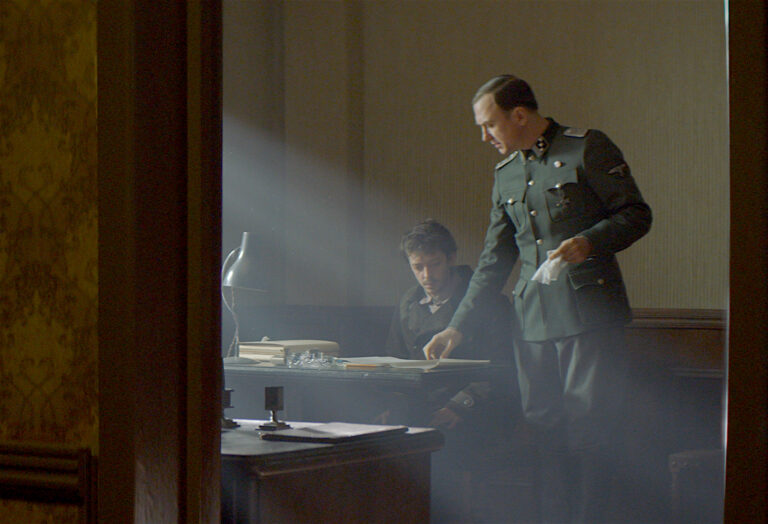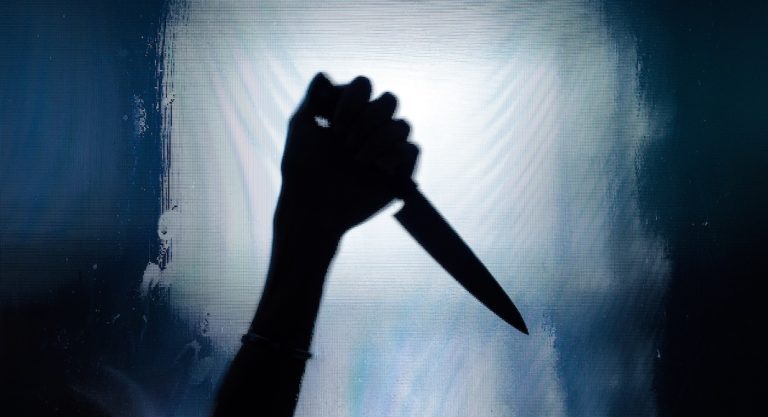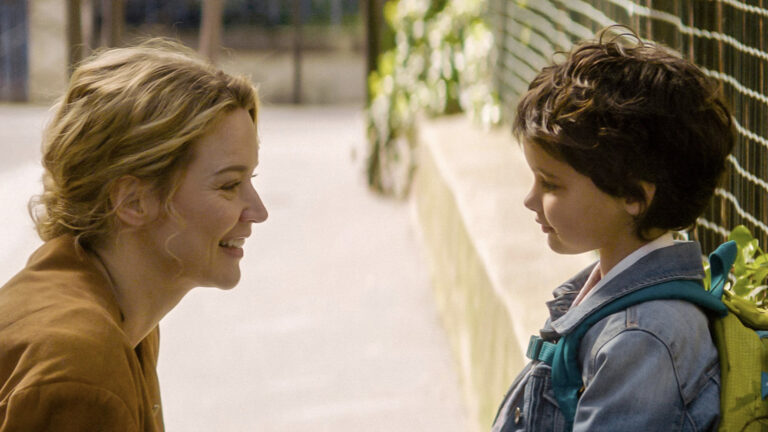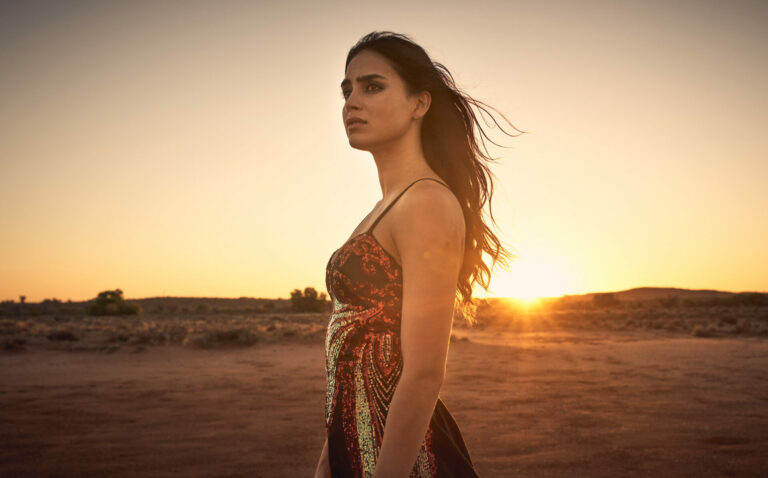Director Cédric Klapisch is passionate about dance. He fell in love with contemporary ballet as a teenager and first filmed a dancer in action while in film school at New York University in the 80s. Many of the movies he’s best known for, including his beloved Spanish Apartment Trilogy—L’Auberge Espagnole, Russian Dolls, Chinese Puzzle—feature people ripping it up on the dance floor, and a character in Russian Dolls is a classical ballet dancer. Directing performance scenes at the Mariinsky Theatre in St. Petersburg expanded Klapisch’s passion to include classical dance, and he went on to direct a documentary, L’espace d’un instant, about the French ballet dancer Aurélie Dupont. Over the pandemic, he created Dire Merci, editing a compilation of videos that dancers from the Ballet de l’Opéra national de Paris had shot on their phones during lockdown as a message of hope and support. When the film went viral, Klapisch knew it was time to make the narrative film about dance he’d always wanted to make.
The result is Rise (En Corps) starring Marion Barbeau, prima ballerina at the Paris Opéra ballet in her first acting role as Elise, a dancer who dramatically and publicly injures herself onstage minutes after finding out her boyfriend is cheating on her. Told she might never dance again, Elise embraces the challenge of finding another occupation that could give her as much joy as dance. While assisting a chef at an artist retreat in Brittany, run by the daffy, lovable Josiane (Muriel Robin), a modern dance troupe led by choreographer Hofesh Shechter (playing himself) shows up, offering Elise the opportunity to push herself in new ways. As she struggles to heal, Elise clashes with her father (Denis Podalydès), who thinks she should have been a lawyer, gets massaged by an adorably dopey and strangely wise physical therapist, Yann (François Civil, who also starred in Klapisch’s 2019 film, Someone Somewhere), and otherwise connects with a host of other lively characters with big, often beautiful, opinions about her prospects.
I had the great fortune to speak with the charming and soulful Monsieur Klapisch about the upside of professional dance, casting non-actors, daring to reach for the stars, and what he learned about life and the movies from The Lion King.

Yann says, “The dance world is a viper’s nest,” yet except for the first scene, you chose not to write about the ugly side of the dance world. Instead, the film explores one dancer’s journey bringing herself back to life within the world of dance.
It’s true, it was intentional to avoid doing a Black Swan story where you stress the rivalry and conflict between dancers. When I’ve done documentaries about dance, I’ve observed that there is more fraternity between the dancers than rivalry, so I tried to concentrate on that. When you dance, you need to dance with the others. You need to have a sense of collectivity.
What was your original spark of an idea for the film?
Originally the idea was to make a story about the life of a dancer and use dancers rather than actors dancing. This was really the starting point, and the fact that the film would exist between documentary and fiction. When the dancers dance, they’re really dancing. The idea was to mix fiction techniques with documentary techniques.

You cast Marion Barbeau, a dancer who hadn’t acted before, as your lead.
I didn’t know if she would be a good actress, and I was lucky that she was! It was a bargain I made with the producer and the casting director. We said, “Okay, let’s go for it,” because we thought she had something much more touching than what an actress could bring to the character.
What kind of challenges did you face with her as an actor?
All the dancers I interviewed and saw during casting were good actors. When you dance well, you have to act well. It was strange to observe that. They know how to be onstage and play a character. They know how to handle the stress of performance. It’s with the words and the meaning of the words that you have to work more, but they’re so used to training that ultimately it was easy for Marion. Dance is much more challenging than acting.

Can you talk about the father daughter relationship? Elise’s father is a lawyer who thinks she shouldn’t have become dancer. He worries about how she will earn a living now that she’s injured, but Elise desperately wants him to see her and understand her.
Yeah, clearly there’s a problem of communication between the two. He thinks communication is only through language and the intellect. That’s why he doesn’t like the fact that she’s a dancer, because it’s a language that he doesn’t understand. In the beginning he doesn’t see his three daughters and, for me, she’s a dancer in order to be seen by her father. He’s a lawyer. He knows how to speak well, he knows how to use his language, and he will discover there are different languages besides the one he knows. He will learn how to see his daughter.
The scene of Hofesh Shechter’s troupe dancing against the wind on the beach is magic. How did you conceive of the scene, and does it have any symbolic meaning for you?
It was complicated, because Hofesh and I had to direct the scene together. We improvised for a few hours, but no one knew what would come of it. I think the meaning of that scene is really about directing. You’re fighting against the wind. You can’t see what you’re doing, but you are dealing with many things happening and you have to react to that in the instant.
Kind of like life.
Yean, the whole story is really about life. For me, dance is a metaphor for life.
For me, the film is about finding joy in whatever you do and discovering new ways to find joy when the old ways become impossible.
To find the meaning to your life means believing that joy can be anywhere, even if there’s injury, even if there is sadness, even if there’s anxiety. I think there’s always a way. When I was thinking about my intention for the movie, I said it was like The Lion King. The child’s father dies, and he feels that life has no meaning anymore. Then something happens that gives you the energy to be happy again. You sing “Hakuna Matata” and life comes back to you.
Is it Yann who tells Elise that weakness is her new superpower, that her weakness, doubt, and fear are forcing her to dance in a different way?
It’s Hofesh Shechter who says it, the choreographer. He’s saying something I’ve heard a lot from contemporary dancers when they compare contemporary dance to ballet. Ballet is a lot about reaching perfection. Contemporary dance is not about that. Hofesh, for example, works with weaknesses and failing and falling down. It’s not about strength or ability. It’s about using problems and using the things that aren’t considered perfect. And I think that means reaching for humanity, because perfection has nothing to do with humanity. I really relate to that and that’s why Hofesh and I relate so much to each other. What he does with dance, I’m trying to do with the actors and storytelling, meaning that I’m not looking for anything perfect or sleek, like in a Hollywood movie where everything is planned out and you write a script and do a storyboard before filming. I like things that are more improvised, more like life.
I love Yann. In some ways he’s ridiculous, but he’s also wise at times, and he loves Elise. I was rooting for him! I was rooting for them. Have you had that reaction?
François Civil, who’s becoming one of the hot actors in France, really loved this character and you can feel that he loves him. His ridiculous aspect has a lot to do with his cuteness and the fact that he’s also lovable. I love the fact that he can be both at the same time.
I love that you compared François Civil as Yann to Brad Pitt in Burn After Reading, my favorite character in one of my favorite movies.
I like Brad Pitt’s weakness in this movie and he’s so funny. He’s wise in a ridiculous way.
There are many mentors who guide Elise—Josiane, Yann, Hofesh—but ultimately she has to save herself.
This is something I believe in life. Other people can help you. But you have to do the job yourself at some point. As a dancer she knows that. No one can dance for her. She has to dance, she has to practice, she has to train, but she can learn from the others. In that respect we come back to what we were saying before, that it’s really not about rivalry, it’s about how you can be helped by your fellow dancers or choreographer or friends. It’s an optimistic point of view, the fact that salvation can come from other people, not only from yourself.

You talk about ballet reaching for the sky and Hofesh’s style of modern dance staying connected to the earth. The modern dance is deeply spiritual, almost animalistic and earthly.
In classical dance you have to be very light. You open your arms, then aim for the sky, and especially for women, it’s about being without weight. With Hofesh, you feel the weight and you feel the earth and gravity, so it’s really the opposite. It’s funny how you can reach for something spiritual with the sense of gravity in Hofesh’s dance, and with ballet you have to escape from reality and escape from gravity. You can reach for something very dreamy and spiritual in opposite ways.
How is En Corps a natural step in the trajectory of your films? How is it similar and different from your other work?
It’s different because of the use of dance. There’s always a scene with dance in my movies, but this one is actually about dance; I wanted to explore another language. The opening scene is 15 minutes without words. I love writing dialogue and this forced me to use the visual language [of dance]. This was really helpful for me to understand more of what movies are about.
What’s next for you?
I’m writing a script with the same scriptwriter (Santiago Amigorena), and it takes place in Paris and Normandy in the 19th century. The big aim is to compare Paris of the 1900s and Paris today.
Is it funny?
It’s like En Corps. You have funny parts. In fact, there are a lot of similarities to En Corps. This movie is about the beginning of the art of the 20th century with photography and painting. Photography was invented around 1830, and painting evolved because photography was invented. It talks a lot about how photography influenced painting.
Rise opens in theaters on June 2.
Andrea Meyer has written creative treatments for commercial directors, a sex & the movies column for IFC, and a horror screenplay for MGM. Her first novel, Room for Love (St. Martin’s Press) is a romantic comedy based on an article she wrote for the New York Post, for which she pretended to look for a roommate as a ploy to meet men. A long-time film and entertainment journalist and former indieWIRE editor, Andrea has interviewed more actors and directors than she can remember. Her articles and essays have appeared in such publications as Elle, Glamour, Variety, Time Out NY, and the Boston Globe.

